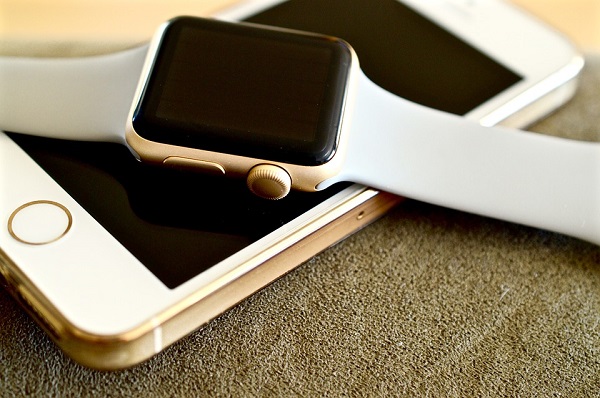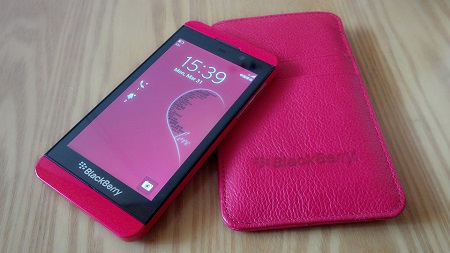Despite the fact that this wearable technology is designed to function cross-platform, iPhone 7 won’t pair.
The Apple Watch may be designed exclusively for iOS, but Android Wear smartwatches are meant to work regardless of the platform. That said, a growing number of reports have been submitted by consumers saying the iPhone 7 and iPhone 7 Plus won’t connect.
Mobile device users are able to pair the gadgets as far as the accept message screen on an iPhone 7.
That said, they seem to be unable to move beyond that point when pairing Android Wear smartwatches. This suggests that there is a failure in the Bluetooth pairing process at one point or another. Google has now released an official list of the specific devices that have been reported to have challenges connecting with iPhone 7 generation smartphones.
 Among those on the list currently include the Moto 360 Sport, the Moto 360 2nd Gen, the Asus ZenWatch 2, the Fossil Q Founder and the TAG Heuer Connected. That said, unofficial lists are popping up all over the web which include other Android Wear based gadgets.
Among those on the list currently include the Moto 360 Sport, the Moto 360 2nd Gen, the Asus ZenWatch 2, the Fossil Q Founder and the TAG Heuer Connected. That said, unofficial lists are popping up all over the web which include other Android Wear based gadgets.
It is not yet known why this specific problem is occurring between Android Wear smartwatches and iPhone 7.
Current speculations are that it has to do with the smartphone, itself and not the new iOS 10 operating system. Google is investigating the matter and will soon release a fix for this problem.
It should be noted that while Android Wear based wearable technology devices will pair with iOS, they do so with limited functionality. This is especially true when it comes to the Google Now features. As Google Now is the primary draw to the Android Wear operating system, it does show a reduced appeal for iPhone users to begin with.
As of the writing of this article, Google does not yet know exactly when it will have the fix ready for the Android Wear smartwatches. It is required to determine the source of the issue before it can put together fix that will repair it. The goal is to have it available within the very near future.
CEO John Chen did everything he could think of to keep them going, but has finally admitted defeat.
BlackBerry smartphones were once the “it” devices. People loved them so much they were called “crackberries.” Where we see iPhones and Samsung Galaxy phones today, the Canadian handset maker once held a tremendous segment of the market.
Since then, BlackBerry fell from its high throne and has been plummeting for years.
Industry experts have been predicting the demise of BlackBerry smartphones for quite some time. At the same time, the struggling company was determined to keep trying, particularly when John Chen took over as CEO. Chen was quoted repeatedly saying that the brand would not give up on hardware.
 In a dramatic turnaround attempt, BlackBerry released one mobile phone after the next. They launched the Passport, a unique square-shaped device, and several others. They even released mobile devices based on Google’s Android operating system instead of the company’s own proprietary OS.
In a dramatic turnaround attempt, BlackBerry released one mobile phone after the next. They launched the Passport, a unique square-shaped device, and several others. They even released mobile devices based on Google’s Android operating system instead of the company’s own proprietary OS.
BlackBerry smartphones will no longer be designed, ordered or sold following this fiscal year.
In a press release, Chen announced the end of the company’s 20 year effort in the mobile hardware marketplace. The company first started in mobile devices in 1996 when it was selling two-way pagers. “The company plans to end all internal hardware development and will outsource that function to partners,” said Chen.
This announcement was made closely on the heels of its quarterly revenue report. Investors clearly saw potential in BlackBerry’s intentions to give up smartphones. Despite the notable drop in quarterly revenue, the announcement of the cessation of its hardware production and sales caused shares to climb 3 percent in premarket trading.
The company also announced that BlackBerry smartphones will continue to exist in some markets. This will occur through a royalty-collecting licensing agreement through the PT BB Merah Putih joint venture. That project is led by PT Tiphone Mobile Indonesia Tbk, the biggest wireless carrier in Indonesia. It will produce BlackBerry branded mobile phones running on Android. The mobile devices will be distributed exclusively within Indonesia. At the moment, no other market will see the sale of devices under this brand.
 Among those on the list currently include the Moto 360 Sport, the Moto 360 2nd Gen, the Asus ZenWatch 2, the Fossil Q Founder and the TAG Heuer Connected. That said, unofficial lists are popping up all over the web which include other Android Wear based gadgets.
Among those on the list currently include the Moto 360 Sport, the Moto 360 2nd Gen, the Asus ZenWatch 2, the Fossil Q Founder and the TAG Heuer Connected. That said, unofficial lists are popping up all over the web which include other Android Wear based gadgets.
 In a dramatic turnaround attempt, BlackBerry released
In a dramatic turnaround attempt, BlackBerry released 